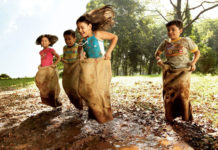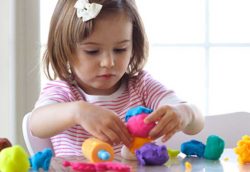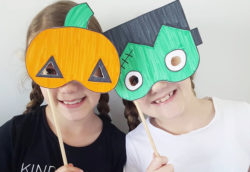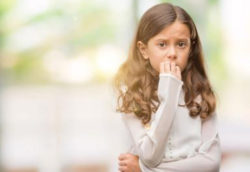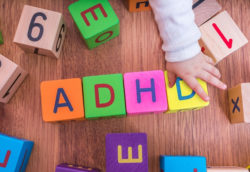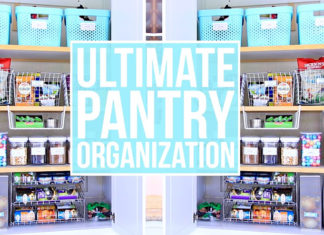Tolerance is not any random word open for exploitation by the media in today’s society but, it has a very deep social meaning for Americans. America has been labeled as “The Great Melting Pot”. This is because of its tendency to bring in people from all the races, religion, and beliefs into one place – which makes it a blend of cultural traditions from all over the world. It is a place of diversity and hence, a place of tolerance. Teaching tolerance is the key to increase the understanding and decrease the fear of our next generation being open and have respect for differences
American society was built on the freedom from religious prosecution and differences in the beliefs and cultural heritage. These differences and diversities that come from various people all around the world enrich the American culture, giving way to grow new ideas and energy.
If we look at the kids today, they interact with kids of different race-ethnicity, religion or culture. The schools are turning to be increasingly diverse, allowing increasing diversity. Then why is tolerance important? It is because, it gives us the ability to endure pain or hardship along with an acceptance of the various opinions, beliefs, practices etc.
Children’s play has a lot of rich meaning in it. It surely reveals their ability to explore and highlight the importance of appropriate social interactions. To develop kindness and compassion becomes a critical path of your little one’s growth. The way they accept others especially if they are different, the must have the feeling of compassion for them. This teaching tolerance to kids must be a part of academic training. When kids are socially competent, they are most successful in life. Kids must have the ability to accept and relate to the people who are different as a necessity for living in the diverse society today.

Kids must be shaped with positive encounters as early as possible. Empathy, kindness, tolerance are few abilities that help to understand other person’s feelings and emotions. And guess what, how do you think kids learn these qualities and from where? They learn at from observing you and seeing you practice. The first thing that you share with a newborn is the relationship between love and care. This is exactly where their learning process begins. At the age of 2, although your tot might not understand why their friend is crying. However, you might have seen then trying to comfort by offering than all toy or food. How do you think did they learn that? By the age of 3, your child would be more aware of others as an individual and has the more strong presence of self. This is when they have trouble related to how others feel. The older kids can begin to understand and comprehend why people have different feelings and a feeling of their own. The kids also realize when they have hurt someone else. By the time your little one turns 5, or 6 years, they can discuss and brainstorm ideas about kindness and how they could help others who need help.
There are many ways for teaching your child tolerance. But to do so, you must first believe the child is able to be tolerant and kind. And also the same way the child treats other people who matter to you. When the child is wounded – you kiss, you hug them when they are scared, help them solve a puzzle or guide them to solve their issues. This gives a base to the child to discover the uniqueness of a relationship.
Learning to recognize similar grounds can be comforting. However, to recognize and learn the differences and accept it would be just as endearing. Tolerance is more about them to accept the difference. As a parent, you must be willing to put off the awkwardness and bring in honest to your talks with about the questions. Parents do feel hesitant in teaching children tolerance especially if they have had not much exposure to the others who are different from themselves. What matters is the circle of friends that they have always had, their schoolmates and neighbors which were not very varied generation’s ago.
So, how do we teach a child how do we teach children tolerance? Parents must prepare the kids to live and work in communities which are even more diverse. The kids who learn to be open to the differences have more successful opportunities in education, business and other aspects of life. A child’s success completely depends on this today. The success of kids today is a success of the world tomorrow. Being able to appreciate, understand and work in cooperation with others makes a lot of difference.

Things you can do to teach kids tolerance:
- You must notice your own attitude. As a parent, if you want your kid to value diversity then, you yourself must be sensitive to cultural stereotype and put an effort to correct them. Always demonstrate an attitude of understanding and respect for others.
- Have a careful selection of books, music, toys, art, and videos for your kids. Remember that these are powerful effective ways in which kid’s attitudes shape up.
- Even though you think your child is busy doing something else, they are always listening. Do not make jokes that build up this stereotype thinking, not even for fun.
- You must always point out and discuss the stereotype talks that are portrayed in the media.
- You must answer your kids with honesty and respect.
- You must acknowledge and help them to respect the differences in your own family and friends. Tell them about the different abilities, interest, and styles that people have and we must value the uniqueness of each and every person.
- Help your kids to feel good about them and build a healthy relationship with others. Kids must be taught to have good self-esteem such that they value themselves and treat others similar way. It is noted that kids who do not feel good about themselves, do not even treat others properly.
- Teach your kids to honor the family tradition and also someone outside the family who would want to learn about the diversity that your family traditions offer.
- Learn with your kids about the different religion and holidays along with their festivals celebrated especially the ones which are not part of your own family.
- Remember that the meaning of tolerance does not mean tolerating unacceptable behavior. It really means that everyone must be treated with respect and they deserve respect themselves.




